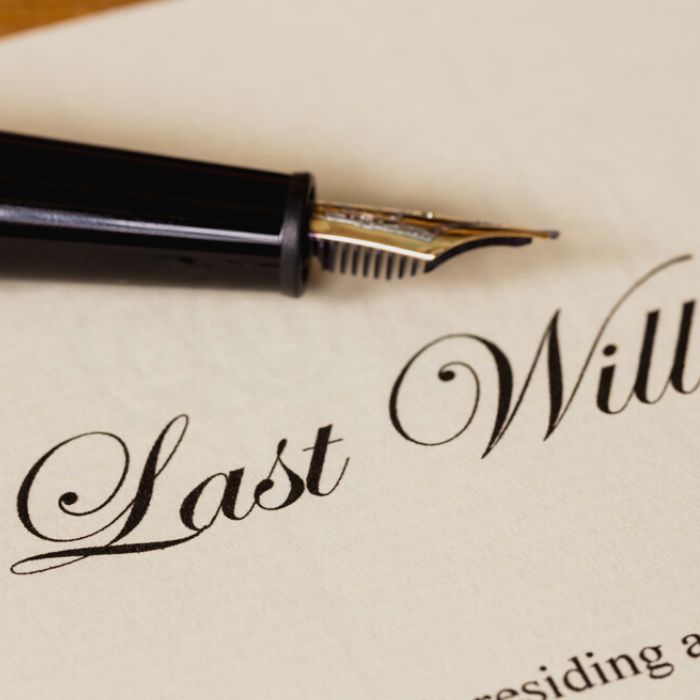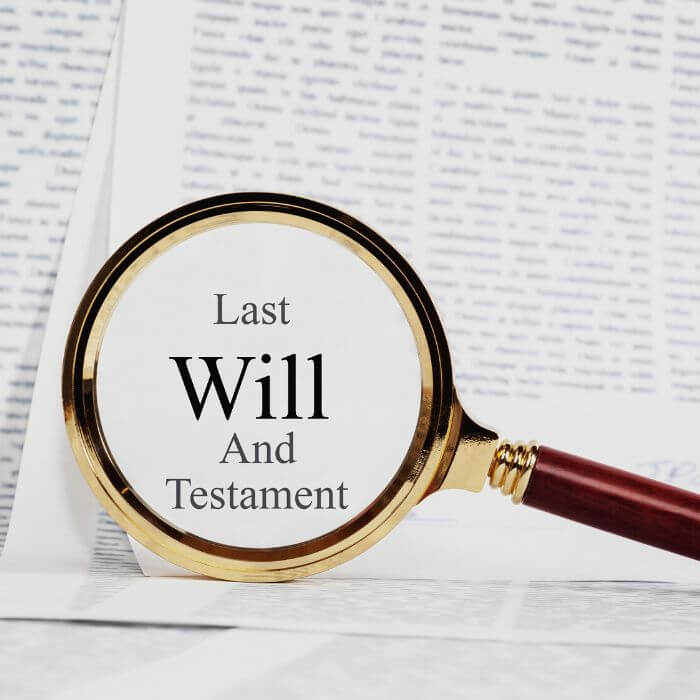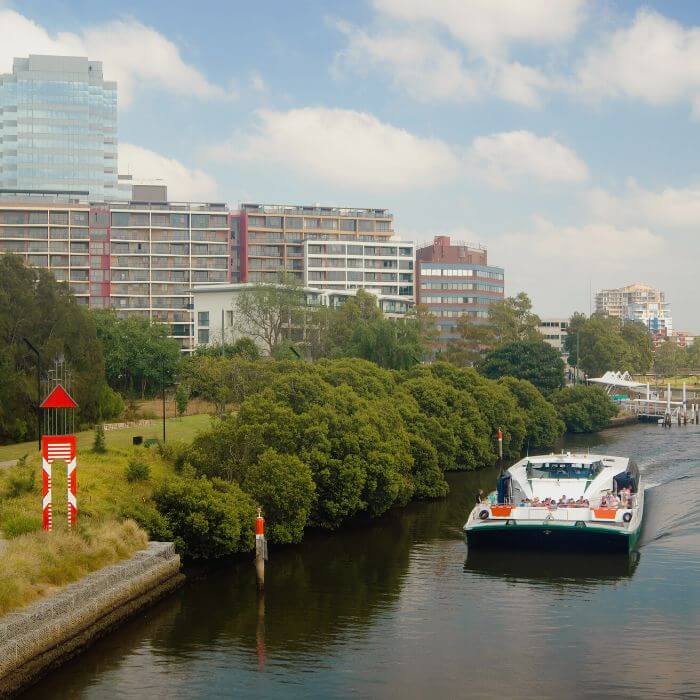Contesting a Will
Your Guide To Contesting and Challenging a Will in NSW
Challenging and Contesting a Will in NSW
The passing of a family member or loved one is an emotionally painful and confusing time — yet you may have to quickly consider the prospect of challenging or contesting a will.
It may perhaps feel inappropriate, disrespectful, or self-serving to question the supposed wishes of the deceased. Yet, you need to be sure that the will is fair to you and others — and that it was written in a clear, lucid, and unpressured state of mind.
Falzon Legal will navigate you compassionately and considerately through the entire process — both acting relentlessly to achieve a just and fair outcome while providing a reassuring service that alleviates the heartache.

The Difference Between Contesting vs Challenging a Will in Sydney and NSW
Although challenging and contesting are often used interchangeably by laypersons when discussing will disputes — legally, there’s a significant difference.
Challenging a Will occurs when you question the actual validity of a Last Will and Testament. This may be because you consider that the testator — i.e. the person writing the will — prepared the document incorrectly, was not in a sound state of mind, or was pressured/coerced in its creation.
Contesting a Will refers to a situation where you accept the document is valid, but believe that you have been incorrectly left out of the document, or if included, consider that you’ve been treated unreasonably.

It’s important to note that the laws regarding challenging and contesting a will in Australia vary slightly across states and territories. At Falzon Legal, we provide specialist advice on these delicate issues wherever you’re located in Australia — although this article relates to the rules pertaining to NSW.
Challenging a Will in Parramatta and NSW
Who Can Challenge a Will?
Generally speaking, those who can challenge the validity and or/authenticity of a will in NSW are:
- Beneficiaries who are named in the current will.
- Beneficiaries who were previously named in an earlier version of the will.
- People who would, if the will did not exist, be entitled to a share of the estate through intestacy — usually, the next of kin.
Challenging a will after probate has been granted — that is, a court declaring the document’s legality — is possible. However, if the executor is already in the process of allocating assets and investments, it can make the challenge’s success incredibly problematic.
Questioning the authenticity of a will through the legal process, and the issues of whether it’s justified and in your best interests, can be both stressful and heart-wrenching. Falzon Legal will direct and advise you compassionately and professionally through the matter.

What Are the Grounds for a Will Challenge?
The reasons that individuals take the step of disputing a will are varied and wide. However, most usually, the grounds for this action are:

Lack of Testamentary Capacity
Under Common Law, testamentary capacity refers to the mental and legal ability to make a Last Will and Testament. Generally speaking, and unless proven otherwise, Australian adults of 18 years or more are assumed to automatically have testamentary capacity.
The 1870 case of Banks v Goodfellow outlines the exact criteria that must be met by the testator to meet testamentary capacity:
- Appreciate the full consequences of making a Last Will and Testament.
- Comprehend completely the full scope of their assets.
- Understand any moral claims to their estate.
- Be of sound mind.
However, if it can be proven that the testator lacked a lucid mindset to write the will — through mental illness, impaired cognitive function, or under the influence of mind-altering substances — the testamentary capacity may be disputed.
Influence and Fraud
If the testator has been coerced, threatened, or manipulated into creating a will that doesn’t represent their true wishes — the will can be challenged. However, any successful case will need to provide evidence of undue influence. A testator receiving advice or gentle persuasion from a third party isn’t grounds for a challenge.
Furthermore, if it can be shown that the Last Will and Testament is a forgery pertaining to be the original will — again this can be disputed through the court process.
Not Meeting Statutory Requirements
The will must be signed and dated by the testator in the presence of two witnesses, who must also sign the document. If not, these can be reasons for disputing a will in Australia.
Speak to Falzon Legal Today About Disputing a Will in NSW

How To Challenge a Will in Australia
If you’re considering challenging a will — carefully think about the implications.
Not only should you expect possibly lengthy legal action, but also run the risk of causing heartache and upset to other family members. They may consider the will to be already a fair and true representation of the testator’s intentions.
At Falzon Law, we will stand by your side, explaining your options, expressing our opinion on your chance of making a successful claim, and supporting you through this emotionally painful and stressful time.
The process for challenging a will in NSW varies depending on individual circumstances, although usually follows this path:

- Discover whether probate has already been granted.
- File a Probate Caveat — preventing the executor from dividing assets until it is removed.
- Argue the case in court.
Should the judge determine that the will is indeed invalid, it will be struck out. You may then apply for probate for a previous, earlier version of the will — which you consider accurate.
If no such prior document exists or cannot be found, usually the assets are allocated under intestacy directives.
Naturally, if you’re unsuccessful in challenging the will, the will stands.

How Long Do You Have To Challenge a Will?
Currently, there is no limit on the amount of time that you have to challenge a will — being possible even after probate has been approved by the court.
That said, if the executor is already in the process of dividing the estate among beneficiaries, it does make the challenge more problematic.
However, remember that this limitless time refers only to challenging a will. There is a strict 12-month window for contesting a will.
How Much Does It Cost To Challenge a Will?
At the conclusion of the court proceedings, the sitting judge will determine who is responsible for costs.
Typically, the successful party is granted an order stating that the second party meets their expenses — although this may not address the full extent of the costs encountered in pursuance or defence of the action.
Talk to Falzon Legal Today — The Understanding Challenging and Contesting a Will Lawyer
Contesting a Will in Parramatta
Can a Will Be Contested by Anyone?
Contesting a will in Sydney and NSW cannot be undertaken by anyone.
Those persons permitted include:
- Spouse of the deceased.
- Former spouse of the deceased.
- De facto partner of the deceased.
- Children of the deceased.
- People who were dependent on the deceased and also a member of their household.
- Grandchildren of the deceased — if they were dependent on the deceased.
- A person with a very close relationship with the deceased and living under the same roof.

What Are the Grounds for Contesting a Will?
If you judge that you have been unfairly left out of the deceased’s will, or that despite being named in the document, you have been inequitably treated — you should consult a contest will lawyer. Naturally, you have to be an eligible person, as outlined above, to make a claim.
And, we know that it can be heart-wrenching.
Feeling that a person who you genuinely loved and cared about neglected you in their legacy, forgot about you, or simply decided you didn’t deserve to be a beneficiary can cause feelings of confusion, anger, disappointment, and anguish.

At Falzon Legal, we will support you. We will deliver our honest opinion on your position — whether you fit the requirements to begin a contest, and your likelihood of success. Yet equally importantly, we will offer continuous reassurance, comfort, and understanding during this time of conflicting emotions.
Should you decide that your reasons to contest a will are convincing and eligible, we will assist in commencing a Family Provision Claim.
How Long Do You Have To Contest a Will?
Should you decide you wish to proceed with making a Family Provision application in NSW — you must make it within twelve months from the date of the deceased’s demise.
If there’s any ambiguity surrounding the actual death date and time — the court will establish what it considers to be a reasonable date. That said, the applicant can request that the court increases this time frame — but this is not always successful.
For an extension to be agreed, the court requires satisfaction that the claimant has a genuine and applicable reason for delay — or that all involved parties consent and agree to the postponement.
The court, in deciding whether to agree to a Family Provision Claim, will look at numerous factors. Although, the most important are whether the will has been granted probate and if the estate has already been divided among beneficiaries.
It’s, therefore, crucial to speak to Falzon Legal as soon as possible. Any delay can mean the difference between a successful or fruitless claim.

How Long To Contest a Will?
There is a strict 12-month window for contesting a will.
Once you have engaged Falzon Legal, we will attempt — wherever possible — to settle the matter with the executor before reaching court. Not only saving you time and expense, but also limiting the extent of your stress, concern, and upset.
Reassuringly, where this course of action is suitable and achievable, the process may be satisfied within just a few weeks.
However, it may not be that straightforward. If negotiations fall apart, we will then file the necessary documents to commence action.
After around six months, sometimes longer, the parties will be pointed towards mediation. And, if this fails to reach a resolution, it could be 18 months before the Family Provision Claim is accepted or rejected by a judge.
Falzon Legal — Our Promise to You
Disputing a will can raise conflicting emotions, concern, and worry.
At Falzon Legal, our experienced Wills and Estates professionals will relentlessly provide diligent and knowledgeable advice — backed by understanding, support, and compassion.
With contestation often being time critical, we strongly recommend you speak to us as soon as possible. And, wherever achievable, we will endeavour to resolve matters away from the court process.
We know that challenges to the deceased’s Last Will and Testament may seem tactless or inconsiderate — but you deserve to be treated fairly.

Contesting and Challenging a Will — Locations We Service
Based within Parramatta, Falzon Legal is perfectly placed to address will contests and challenges in Sydney.
Due to the strong emotions and conflict often involved in this delicate area of law — we prefer face-to-face consultations. We feel this more personal approach leads to greater clarity, ease of conversation, and understanding.
Alternatively, we can travel within an hour of our office — to visit you in your home or workplace. Or, if you’re more comfortable with an online meeting, we are more than happy to oblige.
The locations we service include:
Parramatta and Surrounds
Sydney
Western Sydney
The Hills District
Blacktown
Australia
Country NSWInternational

Will Contestation and Challenge FAQs
How Do You Contest a Will?
To contest a Last Will and Testament, you have to be a close relative or dependent of the deceased — and prove to the court that you were unfairly omitted or treated in the will.
For more information on how to contest a will, speak to Falzon Legal.
When Can You Contest a Will?
In NSW, you must make a Family Provision application within 12 months of the testator’s death. Although, under certain circumstances, the court may agree to an extension of this period.
How To Challenge a Will?
To challenge a will — that is, question the will’s validity — you need the assistance of a solicitor. Initially, a Probate Caveat is required to prevent the executor from dividing up the assets — followed by the submission of evidence to prove that the deceased lacked testatory capacity or the will is subject to fraud or forgery.
Can a Will Be Contested After Probate?
Contesting a will after probate is possible. Although, if the executor has already begun the process of dividing and allocating the estate — this can be seriously difficult.
Can a Sibling Contest a Will?
Generally, it’s not possible for the brother or sister of the deceased to contest the will — unless the court can be convinced that the sibling both resided with the departed and were partly or wholly dependent upon them.
Can a Grandchild Contest a Will?
Yes. However, the grandchild must demonstrate that they were dependent on the deceased. Simply being a relation doesn’t automatically mean a right to contestation.
Can You Contest a Will if You’re a Friend of the Deceased?
A friend or acquaintance of the deceased may only contest a Last Will and Testament if they lived with the departed and were also dependent upon them.
Should I Speak to a Contest Will Lawyer After Probate?
Ideally, you should speak to a contest lawyer prior to the granting of probate. However, in some circumstances, it is possible to contest a Last Will and Testament even if the executor has commenced dividing assets.
